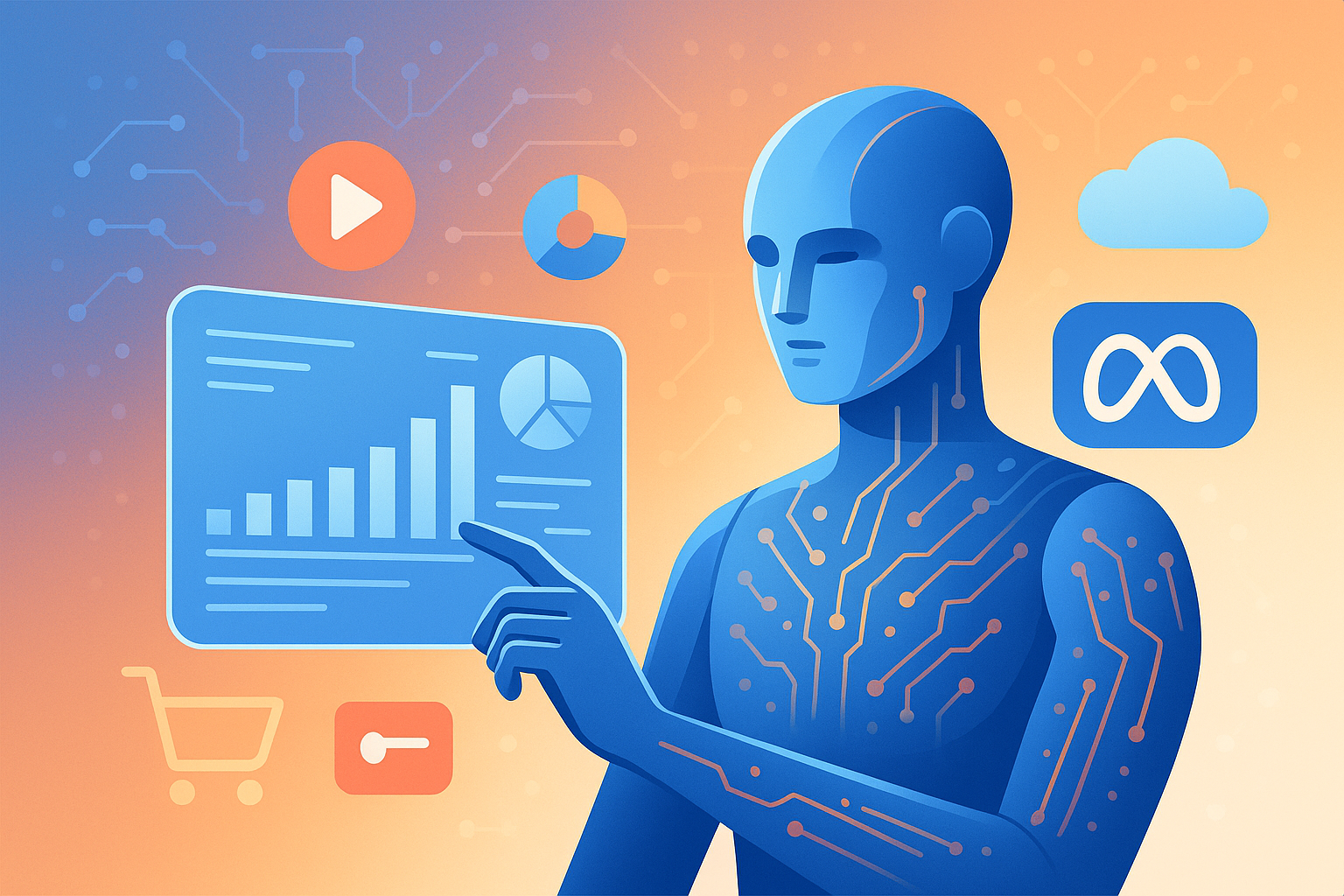Artificial intelligence is transforming how marketing works right now. Major platforms like Meta and Pinterest have recently upgraded their systems with AI tools that help create ads and improve search features. These changes are happening fast. AI is no longer just a cool extra feature—it’s becoming the backbone of how marketing campaigns are built, run, and measured.
Key Takeaways
- AI has shifted from experimental tech to an essential tool for marketers, handling everything from creating ad content to optimizing campaign performance
- Meta and Pinterest have integrated advanced AI features into their platforms, with Meta enhancing ad capabilities and Pinterest upgrading its visual search with AI-powered style discovery
The marketing world is changing. Fast. What seemed futuristic just months ago is now standard practice. AI has slipped into every corner of the marketing workflow, from writing ad copy to predicting which campaigns will succeed.
How AI is Reshaping Advertising
AI’s impact on advertising is massive. It now generates creative content, manages budgets, and forecasts results. Google Ads and Meta Ads use AI to sell, target, and place advertisements across their vast networks in real-time.
Meta’s AI specifically helps marketers by generating creative ideas tailored to specific audiences. It analyzes performance data too. This means campaigns can be adjusted quickly based on what’s actually working. No more waiting weeks to see results.
Real businesses are seeing real results. Digital marketing firm Frizbit has highlighted success stories with clients like ParkVia and ForumSport, showing concrete benefits from AI-driven marketing strategies.
The SEO Revolution
“Answer-Engine Optimization” is the new buzzword. What does it mean? Simply put, it’s about creating content so good that AI systems cite it directly. Your brand could appear in AI responses before users even click a link.
This shift requires a different approach to content. Quality matters more than ever. Think depth, not just keywords. Users want answers, not fluff.
Meanwhile, privacy-first search engines are gaining popularity. This shows that innovation and user trust can grow together. Smart marketers are finding the balance between AI capabilities and ethical data use.
What’s Coming Next
Google has rolled out AI Max for search campaigns. It’s not just another update. The technology promises to boost keyword reach and optimize creative content with minimal human input. Early adopter L’Oréal has seen conversions increase by up to 27% in certain campaigns.
TikTok continues to change how people shop online. TikTok Shop’s easy checkout process has made the “watch-click-buy” experience feel natural. Consumers now expect to purchase items they discover without leaving their content stream.
Short videos sell. That’s the simple truth platforms are building around.
AI isn’t replacing marketers—it’s transforming what they do. The most successful teams use AI for data analysis and content creation while humans focus on strategy, creativity, and understanding customer emotions. It’s like having a super-powered assistant that handles the grunt work while you focus on the big picture.
Companies that adapt to this AI-driven landscape will thrive. Those that resist will struggle to keep up with competitors who can create, test, and optimize campaigns at unprecedented speed. The future of marketing isn’t just AI-enhanced—it’s AI-integrated at every level.


